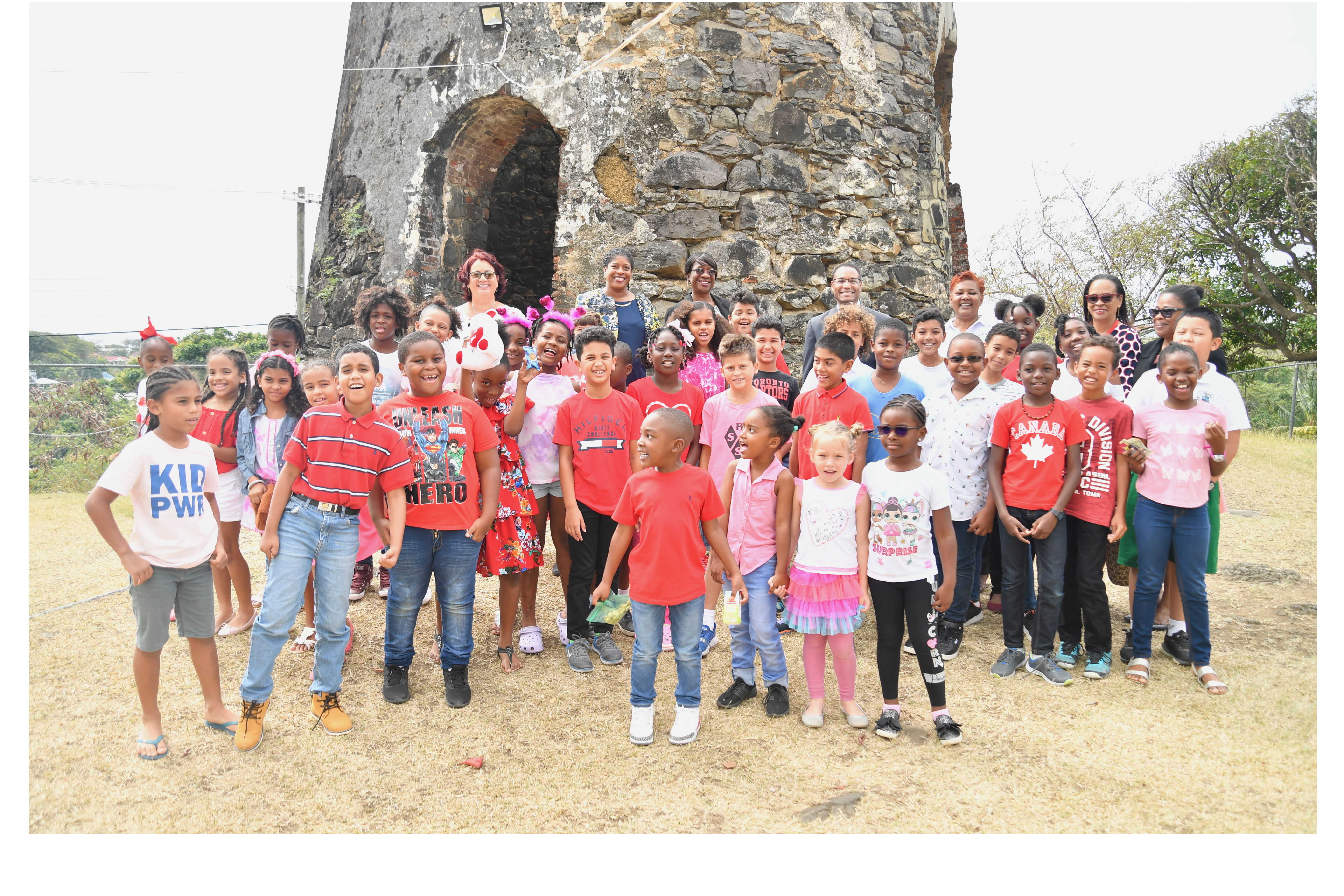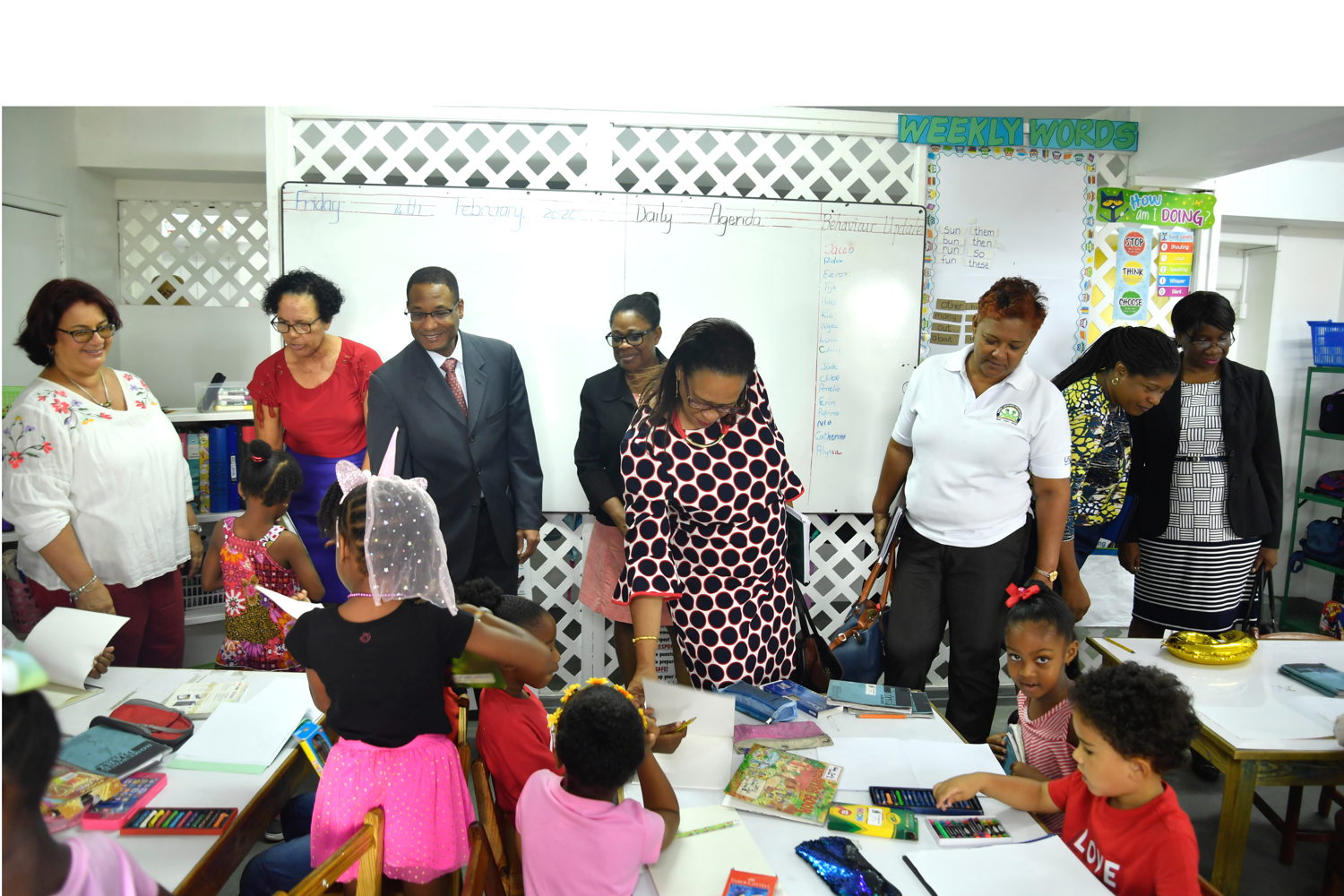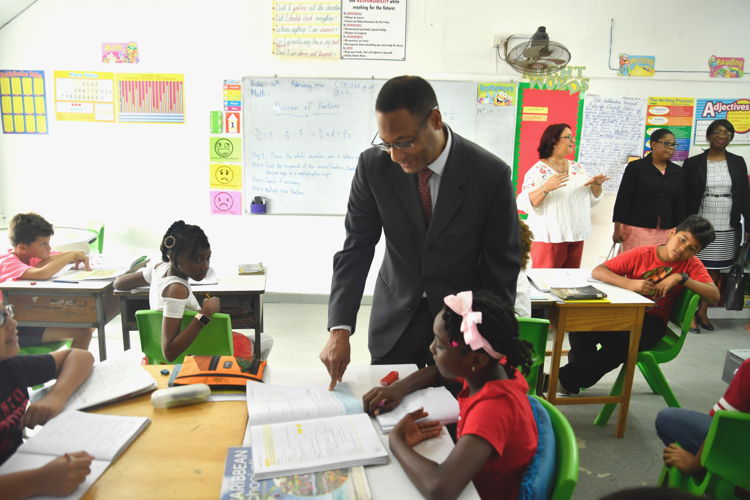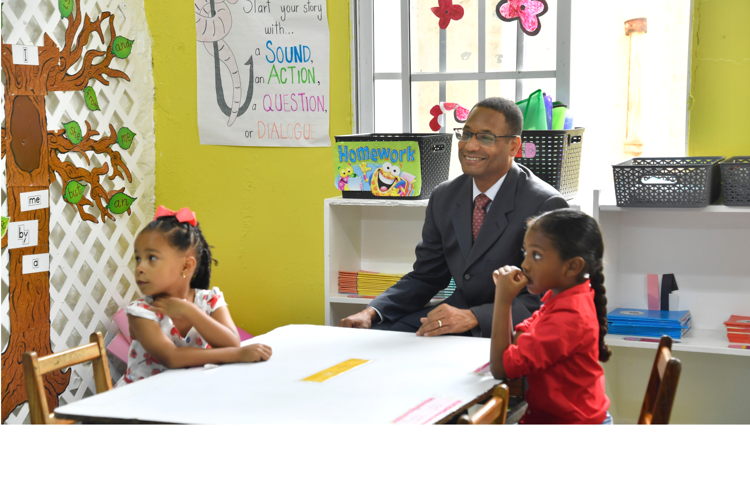USAID commends the success of Read to Succeed Programme at Sugar Mill Academy in St. Vincent and the Grenadines!
OECS/USAID Early Learners Program (ELP) Media Release
USAID continued its tour throughout the OECS Member States with Mr. Clinton White, USAID Representative to the Eastern and Southern Caribbean, visiting Saint Vincent and the Grenadines on February 17, 2020 to witness the benefits of the OECS/USAID Early Learners Programme (ELP) - an $8.9 million initiative to improve the reading skills of primary grade children. Mr. White met with the teachers and students at the Sugar Mill Academy in Ratho Mill to see firsthand how the special Remedial Reading Programme ‘Read to Succeed’ has been expanded. Under the OECS/USAID ELP a total of sixty-three (63) schools across the OECS have benefitted from school-based grants which directly support reading improvement.
Sugar Mill Academy has long since had a ‘Read to Succeed’ Programme, however, the school took their efforts to a higher level with grant funding from the OECS/USAID ELP to establish a Remedial Reading Programme. This Remedial Reading Programme commenced in 2018, aimed at extending a small remedial reading programme to all kindergarten to Grade 3 classrooms to improve the reading skills of students who had diverse learning challenges in language. The programme included teacher professional development in reading instruction and individualized sessions with students based on individual student needs, student readiness and continuous assessment. The teachers implemented one on one sessions with the students utilizing a variety of different proven methods to support reading such as manipulative use of playdough, 3D letters, puzzles, word games and other resources e.g. work sheets, technological devices (online games, programs) and drama (multi-sensory approach, physical theatrical activities); learning centres (supermarket; role playing).
The parents were also very involved in the programme in order to support their children’s development, with various workshops and sensitization training to provide them with knowledge, skills and ideas to help their children at home. Additionally, parents were given regular feedback on their children’s progress.
Speaking during the visit by USAID about the success of the programme, Principal of Sugar Mill Academy, Mrs. Liz Cordice stated “ the OECS/USAID ELP has enabled us to expand on our existing ‘Read to Succeed’ programme which focuses on those students who are struggling with reading as well as those who are reading ahead of or at their grade level. We are amazed at the progress that we have seen with the remedial students and those students who are now reading above their grade level, and we thank OECS/USAID for including us in their programme”
In welcoming Mr. White and thanking USAID for their contribution, the Chief Education Officer Mrs. Elizabeth Walker, stated that “Literacy is one of the Ministry of Education’s major concerns because if students are unable to read, it affects every other area of their life and their development. I am pleased to see that Sugar Mill Academy has created a culture of literacy and a culture of reading at the school where students are excited about reading and the various initiatives that the teachers are implementing - thanks to the OECS/USAID ELP.”
Mr. White was able to observe first hand how the programme has benefited the students and stated that “I was very impressed and enthused as I walked through each classroom at the Sugar Mill Academy to see that students are learning and reaping the benefits of the OECS/USAID Early Learners Programme from the various learning techniques that teachers have implemented. Engaging with the students highlighted not only the positive reading skills of the students but the critical thinking that has been elicited through the various reading programmes. It was very impressive to see the teachers utilizing the various tools from ELP with the students and how engaged and interested the students were in the learning process”.
About OECS/USAID ELP:
OECS/USAID Early Learners Programme is a Programme within the Education Development Management Unit of the OECS Commission and was established in March 2015 to improve the reading skills of children in the early primary grades with the goal of providing a foundation for improved learning outcomes and enhanced opportunities for students in the six (6) independent Member States of the OECS (Antigua and Barbuda, The Commonwealth of Dominica, Grenada, Saint Lucia, St. Kitts and Nevis and St. Vincent and the Grenadines). To date the ELP has achieved a number of tangible outputs with over 17,000 learners reached at the Primary level, over 1500 Grades K to 3 teachers supported through job embedded professional development, 1426 lessons observed and 1031 coaching sessions with teachers have been completed by ELP Coordinators. Further, 60 schools across the Member States have received development grants to support reading enhancement projects and 173,114 teaching and learning materials have been provided to 750 classrooms across the OECS. The OECS/USAID ELP will run through to September 2020 continuing to develop and implement impactful initiatives that advance early grade reading throughout the OECS.
More information regarding the OECS/USAID Early Learners Programme Contact:
ELP Office at the Education Development Management Unit (OECS Commission) 453-0669 email: oecsusaidelp@oecs.int
Tracey Warner-Arnold (Branding & Marking Consultant) 718-1510 email: terriahltd@gmail.com





